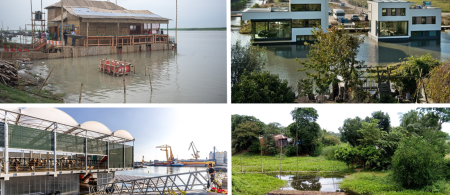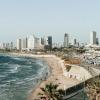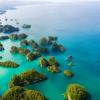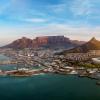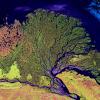Co-founder and Director
Rutger de Graaf-van Dinther is a researcher and entrepreneur with 15 years of experience in climate resilient floating urban development. With DeltaSync and Blue21, he worked on iconic floating projects including the Floating Pavilion Rotterdam and Floating Ecohomes, Harnaschpolder Delft, the Netherlands. More recently, Blue21 was design and technology partner in realizing the Innozowa floating solar project.
Rutger is chairman and co-founder of Blue Revolution Foundation, a non-profit for interdisciplinary applied research on governance, technology and ecology for a sustainable floating future. With MARIN, he initiated the National Research Initiative "Floating Future" an interdisciplinary collaborative research proposal with more than 40 organizations(business, government, civil society and research) to start academic research on large scale floating structures to create climate resilient living space.
From 2011 to 2021, Rutger was applied research professor of water innovation at the Rotterdam University of Applied Sciences. His research topics included: floating urban development, resilience, adaptive urban development, innovative monitoring of climate adaptation measures and water quality. From 2010 to 2015 he was Editor of the Journal of Water and Climate Change of the International Water Association.
Trained as civil engineer with a MSc and PhD (both finished cum laude) of Delft University of Technology, he expanded his knowledge in various additional fields of expertise including governance, sustainability, transition management, resilience and design. Rutger has been consultant to the Dutch Delta Programme, Topsector Water and City of Rotterdam and international clients from other countries including Japan, USA and Europe.
Rutger is (co) author of multiple international books, book chapters, and peer reviewed journal articles. He published together with Henk Ovink, the Special Envoy for Water of the Netherlands, about the "5 Capacities of Climate resilient Urban Areas". This framework was the foundation of the book Climate Resilient Urban Areas, published by Palgrave MacMillan in 2021. International media interviews include the New York Times, Financial Times, BBC World Radio, and Discovery Channel.


